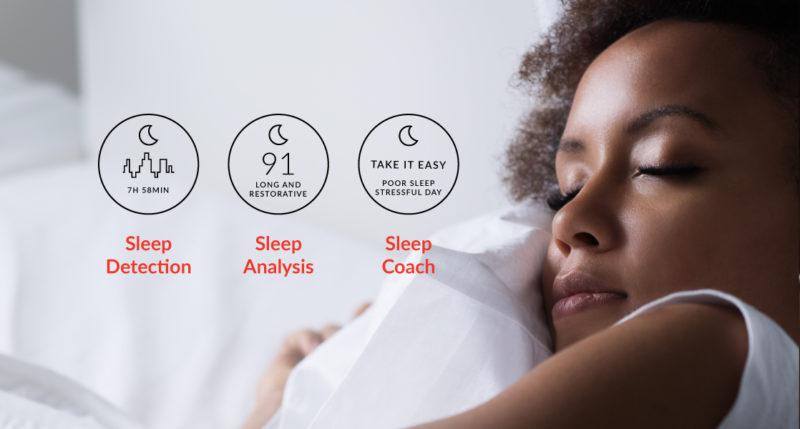
In this interview, Firstbeat Physiology Research Manager Tero Myllymäki, M.Sc., explains the physiology of sleep, how sleep experts define good sleep, and why sleep stages are important.
Let’s start at the beginning. What is sleep? And why is good sleep so important? 
When you fall asleep your body enters a resting state that is essential to our personal wellbeing. Your heart rate gradually decreases, heart rate variability (changes in the length of time between consecutive beats) increases, and your core body temperature decreases. Blood pressure also decreases There is also a reduction in the production of stress hormones like cortisol when you are asleep.
What this tells us is that sleep is a time during which the parasympathetic branch of your autonomic nervous system is at it’s most active, facilitating the processes that help your body prepare itself for challenges ahead.
Many things happen when we are asleep that affect us. And yet, it’s impossible to state with certainty all the different reason that we need sleep. Some theories suggest sleep is crucial for clearing metabolites and waste products from our brains. Other theories focus on the restoration of physiological and psychological functions of a person.
Sleep is important for our hormonal processes. During the night, when you are asleep protein synthesis and growth hormone secretion increase, both essential for repairing your body from the strain of activity. Sleep also helps with glucose metabolism and various hormones that regulate our appetite. As a result, how well you sleep can influence your body weight and body composition.
Is heart rate variability always at its highest and heart rate lower when we are asleep?
Typically, yes, HRV is at its highest level when you are asleep. This corresponds to the strongest recovery state you can achieve. Some people do exhibit a lower heart rate and higher HRV during the day. This is unusual, however, and is frequently tied to medications that disturb normal overnight recovery patterns.
Waking up feeling good is a good sign, but where do the more official standards for good sleep come from?
Accepting that sleep may always remain something of a mystery, sleep experts have still managed to identify and agree on certain criteria for defining good sleep. The development of expert recommendations related to sleep quality has been a relatively recent event.
Sleep recommendations are typically the work of national and international governing bodies. These organizations convene panels of experts who work in the field of sleep. Together these experts examine a huge number of research papers and build a consensus around their expertise and findings from the latest research.
Personally, I am quite happy to see this undertaken by the National Sleep Foundation, which produced new guidelines for sleep quality in 2017. Historically, these sleep recommendations focused primarily on duration, but the evidence is clear that how long you sleep isn’t the only thing that matters.
These experts sleep recommendations you mention vary by age. What is the relationship between sleep growing up and getting older?
Anyone who spends time around children can see their sleep needs are different from those of an adult.
Apply what we know about sleep and this makes perfect sense. When you are young, many changes are happening to you. You are getting stronger. You are getting taller. Your cognitive skills improve. During most of our adult lives, our sleep needs are relatively stable. Your situation, from a physiological perspective, is also quite stable, compared to when you were growing up.
As we get older, our need for sleep stays roughly the same as younger adults, but the structure of our sleep tends to worsen. Our sleep structures become more diverse with more interruptions and awakenings, and things like that. So, sleep quality tends to worsen as we age.
Studies reveal how different sleep stages support various aspects of our brain functions. For example, there appears to be a relationship between REM sleep and memory. If you are able to exhibit a normal amount of REM sleep in the later stages of life, it typically bodes well. On the other hand, significant decreases in the amount of REM sleep you get during the night frequently indicates problems and may be associated with the risk of getting Alzheimer disease and dementia.
Do deep and light sleep each serve some special function as well?
Deep sleep is usually considered to be the most restorative sleep stage. It’s also the sleep stage that tends to be the most responsive to our daily activities and lifestyle choices. For example, if you are sleep deprived and haven’t slept much, then when you do sleep the percentage of deep sleep you get will likely be higher than what you normally experience.
Similarly, when you are more physically active at work or are in the midst of a hard training program, you will typically have increases in the proportion of deep sleep you get during the night. This accompanies the increase in the amount of restorative and reparative work your body needs to perform as a result of your activities.
Light sleep is the most basic form of sleep and it can be easy to undervalue its importance. Experts are usually more focused on how much deep sleep you get, how much REM sleep you get, and the number of awakenings you experience. And while the specific contributions of light sleep may be harder to isolate, we shouldn’t ignore it.
How can we improve our sleep quality? Is there some special advice you can give to those who feel a need to improve their sleep but feel powerless to do so?
Yes, obviously, it isn’t realistic to affect your sleep stages during the night. You won’t be able to increase the amount of REM sleep you get by force of will. What you can do, however, is to focus on and evaluate what you do during the day. Looking at what you do in last few hours before you go to bed is especially important.
As a rule, however, all the work you do towards crafting a healthy, well-balanced lifestyle can have a positive effect on the structure and distribution of your sleep cycles.
At a basic level, this means getting enough physical activity during the day, and regularly challenging yourself a few times each week with exercise that stimulates your cardiorespiratory fitness maintenance and development. It can also mean eating right and keeping an eye on your stress levels throughout the day, developing your acumen for recognizing and understanding the impact of various stressors.
This can be a complex issue because the elements of a balanced lifestyle are often interrelated. Challenged sleep contributes to our likelihood making poor lifestyle decisions and unhealthy decisions, and those in turn can reduce sleep quality.
It’s somewhat cliché, but ultimately you have to focus on what you can control and make a conscious effort to forge good habits during the day and create stable routines in the evening. This gives you the best opportunity to improve your sleep quality.
Thanks, Tero.
Rest and recovery help cope with stress. Firstbeat Life helps you see if you’re balancing stress and recovery.
You might also be interested in

Introducing the Firstbeat Sleep Solution for Consumer Products
Firstbeat Technologies, the industry’s leading provider of physiological analytics for health, fitness and performance, has introduced an all-new, sleep-oriented feature set. Firstbeat Sleep Solution is comprised of a trio of…

How Can I Sleep Better at Night? Tips to Start Today.
Bad sleep can leave anyone struggling for answers. Why can’t I sleep? Why am I so tired in the morning? Why can’t I find the motivation to exercise and focus at work? Using a wearable device to track your sleep a good way to capture longer trends.

